Members of Imperial selected to feature among 175 Faces of Chemistry
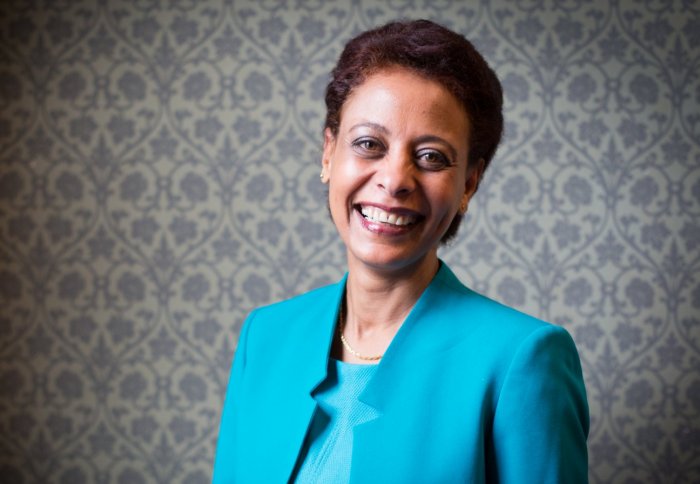
Dr Hanadi Hassan-Nixon
Imperial staff and a PhD student have been selected to feature in the Royal Society of Chemistry's campaign to celebrate diversity in the field.
The Society’s 175 Faces of Chemistry will profile 175 different scientists who represent diversity in its broadest sense - as part of the build up to the organisation’s 175th anniversary in February next year.
Professor Lesley Yellowlees, Past President of the RSC, said: “Having launched 175 weeks before the anniversary, we aim to engage our members and the general public in building up a portfolio of individuals that reflect the diversity of people in chemistry and act as role models, champions or ambassadors to a diverse, future generation of scientists.”
Imperial profiles so far include:
Professor Sue Gibson
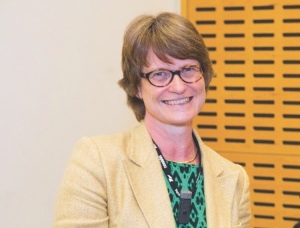
Professor Sue Gibson
Professor Sue Gibson holds a Chair in Chemistry at Imperial, and is also Director of the Graduate School. She was awarded an OBE for her services to Chemistry and Science Education in 2013, and is part of the RSC’s diversity working group.
Talking about the transition from postdoc to researcher, Sue said: “It was exhilarating (and a bit scary) to be working on my own ideas for the first time, and this gave me the motivation and determination to get a lab set up, write grant proposals, give external seminars and so on. Every single step of that first year of independence proved challenging, exciting and rewarding.”
Sue highlighted the range of careers available within chemistry: “I know chemists who have won Nobel Prizes, designed life-saving drugs, started up new companies, advised governments, and so on; and just as importantly, there are many chemists who in many different ways are working to inspire future generations to address issues such as climate change, food, energy and water provision, and personalised medicine.”
Dr Hanadi Hassan-Nixon
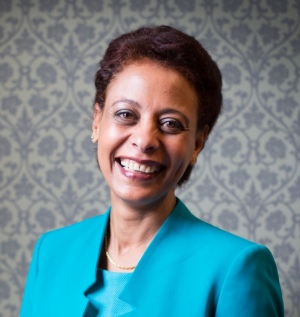
Dr Hanadi Hassan-Nixon
Dr Hassan-Nixon has returned to scientific research after a 12 year career break, taking up a Daphne Jackson Trust Fellowship at Imperial. She is currently working to develop a diagnostic device that will help clinicians decide on appropriate treatment for patients suffering from hay fever and asthma.
Hanadi said: “I encourage any person to resume their scientific career even after a long break. It is amazing what the brain retains and what you can contribute from your previous scientific and life experience.”
Photo © Royal Society of Chemistry / Stephen Lake
Kerry O’Donnelly
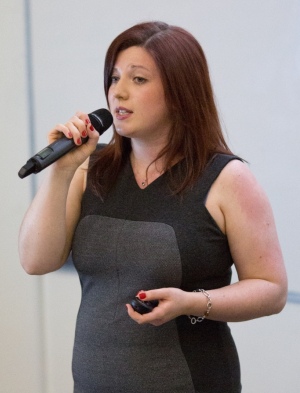
Kerry O'Donnelly
Miss O'Donnelly is doing a PhD at the Institute of Chemical Biology, a Doctoral Training Centre at Imperial. With fellow PhD student Angela de Manzanos, she is a co-founder of a company called FungiAlert which aims to help increase global food production – “You can look at it as a smoke alarm for farmers – it alerts you to the problem before it destroys everything,” Kerry explained.
The pair were supported by the Althea-Imperial Programme, an initiative run by Imperial which aims to support female students in developing their entrepreneurial skills. Speaking about the programme, Kerry said: “Through tailored sessions and workshops, we were supported through the development of our ideas, and were also able to hear the stories and experiences of many influential female entrepreneurs.”
Kerry added: “The development of FungiAlert has been an intense and steep learning curve, but this has only added to the enjoyment of running the company. We have truly loved being able to drive our project from idea and product development, to now having the opportunity to commercialise our invention.”
Professor Tom Welton
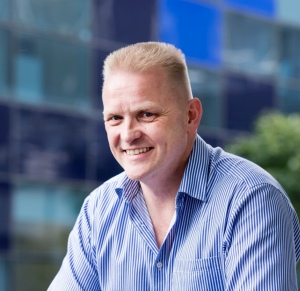
Professor Tom Welton
Professor Welton is Dean of the Faculty of Natural Sciences at Imperial, having previously been Head of the Department of Chemistry.
Speaking about his experience of being gay in the scientific world, Tom said: “I have always thought that it’s not so much that I am ‘out’ about being gay, but more that I have never had any desire to pretend otherwise. I have only ever been dealt with as a professional going about my career with the vast majority of people who I have met being kind and supportive.”
Tom believes inclusion is key: “Everyone can and must play their part. So, after reading this, don’t go away saying ‘this is what other people need to change in order to make my workplace more diverse’ – instead ask, ‘what can I change about how I behave to make my workplace more inclusive.’ If you do this, tomorrow where you work will be slightly more inclusive than it was yesterday.”
Dr Martha Annie Whiteley
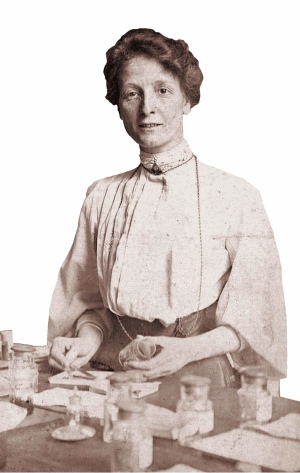
Dr Martha Annie Whiteley
Unlike the other Imperial names featured, Dr Whiteley (1866-1956) is a figure from Imperial’s past rather than its present. Having completed a PhD, Martha joined the Royal College of Science staff, and then became part of Imperial when it was formed in 1907.
In 1904 Martha and 18 other female chemists attempted to change the male-only admission criteria to become a fellow of the RSC’s oldest predecessor, the Chemical Society. When women were finally admitted in 1920, Martha was one of the first female members and later became the first elected to the Society’s council.
Martha was awarded an OBE for her research at Imperial during WWI, where she analysed samples from battlefields and bombsites, including studying mustard gas.
Article text (excluding photos or graphics) © Imperial College London.
Photos and graphics subject to third party copyright used with permission or © Imperial College London.
Reporter
Elizabeth Nixon
Communications Division